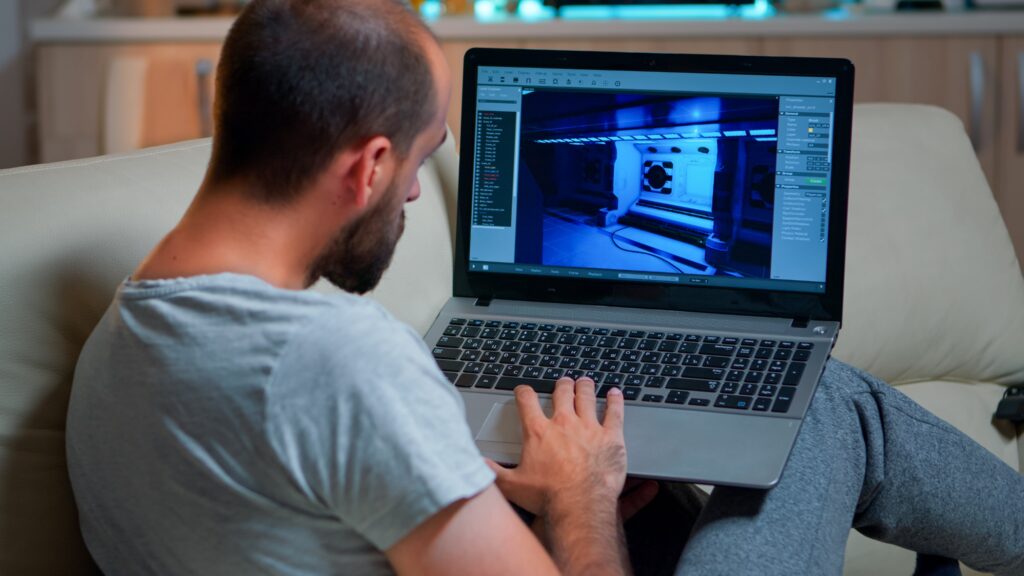Are you fascinated by the intersection of art and science? Do you have a passion for creating visual storytelling that can help solve crimes? If so, a career in forensic animation might be the perfect fit for you.
Forensic animators play a crucial role in the criminal justice system by using their artistic skills to recreate crime scenes, accidents, and other events to help investigators and jurors better understand complex information.
In this guide, we will explore the exciting world of forensic animator jobs, including what they entail, the skills required, and how you can kickstart your career in this dynamic field.
1. Forensic Animator
As a forensic animator, your primary responsibility will be to create accurate and detailed visual representations of crime scenes, accidents, and other events based on evidence and data provided by investigators. These animations can range from 2D diagrams to complex 3D simulations, depending on the specific needs of the case.
Forensic animators must have strong attention to detail, excellent communication skills, and the ability to work collaboratively with law enforcement professionals.
2. Forensic Artist
Forensic artists use their artistic skills to create sketches and facial reconstructions of suspects, victims, and unidentified individuals in criminal investigations. While forensic artists typically work with traditional media such as pencil and paper, some may also use digital tools to enhance their work.
To succeed as a forensic artist, you will need a keen eye for detail, strong observational skills, and the ability to work under pressure to meet tight deadlines.
3. Digital Forensic Analyst
Digital forensic analysts play a crucial role in modern criminal investigations by retrieving and analyzing digital evidence such as emails, text messages, and computer files. In cases where digital evidence is central to the investigation, forensic animators may be called upon to create visualizations of this data to help investigators and jurors understand its significance.
To excel as a digital forensic analyst, you will need a strong understanding of computer systems, data analysis techniques, and forensic tools.
4. Crime Scene Investigator
Crime scene investigators are responsible for collecting and preserving physical evidence at crime scenes, which can include everything from fingerprints and DNA samples to bullet casings and tire tracks. Forensic animators may work closely with crime scene investigators to create animations that illustrate how the evidence was collected and its relevance to the case.
To pursue a career as a crime scene investigator, you will need a strong background in forensic science, attention to detail, and the ability to work methodically under pressure.
5. Forensic Pathologist
Forensic pathologists are medical doctors who specialize in determining the cause of death in cases of suspicious or unexplained deaths. While forensic pathologists primarily work in laboratories and morgues conducting autopsies, they may also collaborate with forensic animators to create visual representations of injuries or medical conditions that are relevant to a case.
To become a forensic pathologist, you will need to complete medical school, a residency in pathology, and a fellowship in forensic pathology.
6. Forensic Psychologist
Forensic psychologists apply their knowledge of human behavior and mental processes to legal issues, such as criminal investigations, court cases, and offender rehabilitation. In cases where psychological factors are relevant to a crime, forensic animators may work with forensic psychologists to create animations that illustrate the psychological aspects of the case.
To pursue a career as a forensic psychologist, you will need a doctoral degree in psychology, specialized training in forensic psychology, and a state license to practice.
7. Forensic Accountant
Forensic accountants use their expertise in accounting and financial analysis to investigate financial crimes, such as embezzlement, fraud, and money laundering. In cases where financial evidence is central to the investigation, forensic animators may be called upon to create visualizations of complex financial transactions or patterns.
To become a forensic accountant, you will need a bachelor’s degree in accounting or a related field, professional certification such as Certified Fraud Examiner (CFE), and strong analytical skills.
8. Forensic Anthropologist
Forensic anthropologists specialize in the identification and analysis of human skeletal remains in the context of criminal investigations and mass fatality incidents. By studying skeletal remains, forensic anthropologists can provide valuable information about the identity, cause of death, and manner of death of an individual.
Forensic animators may collaborate with forensic anthropologists to create visual reconstructions of facial features or injuries based on skeletal remains. To pursue a career as a forensic anthropologist, you will need a graduate degree in anthropology or a related field, specialized training in forensic anthropology, and experience working in forensic settings.
9. Forensic Odontologist
Forensic odontologists are dental professionals who specialize in the identification of human remains through dental records and the analysis of dental evidence in criminal investigations. By examining dental records, bite marks, and dental anomalies, forensic odontologists can help establish the identity of victims or suspects in criminal cases.
Forensic animators may work with forensic odontologists to create visualizations of dental evidence that can be presented in court. To become a forensic odontologist, you will need a dental degree, specialized training in forensic odontology, and certification from a recognized forensic organization.
10. Forensic Engineer
Forensic engineers apply their knowledge of engineering principles to investigate accidents, failures, and other events that involve technical or mechanical components. By analyzing physical evidence and conducting simulations, forensic engineers can determine the root cause of an incident and provide expert testimony in legal proceedings.
Forensic animators may collaborate with forensic engineers to create visualizations of engineering concepts or accident reconstructions. To pursue a career as a forensic engineer, you will need a degree in engineering or a related field, specialized training in forensic engineering, and professional licensure.
Conclusion
In the competitive field of forensic animation, gaining practical experience and building a strong portfolio are essential steps toward securing a rewarding career. Consider enrolling in specialized training programs, such as the NYU Animation Industry Essentials course offered by Yellowbrick, to enhance your skills and network with industry professionals.
By honing your technical abilities, developing a keen eye for detail, and staying updated on the latest advancements in forensic technology, you can position yourself for success in the dynamic world of forensic animator jobs.
Key Takeaways:
- Forensic animation is a dynamic field that combines art and science to help solve crimes and present complex information in a visual format.
- Careers in forensic animation include roles such as forensic animator, forensic artist, digital forensic analyst, crime scene investigator, forensic pathologist, and more.
- Essential skills for success in forensic animation jobs include attention to detail, strong communication skills, collaboration with law enforcement professionals, and a keen eye for detail.
- Practical experience and a strong portfolio are crucial for entering the competitive field of forensic animation.
Consider enhancing your skills and networking with industry professionals by enrolling in specialized training programs like the NYU Animation Industry Essentials course offered by Yellowbrick. This online course can provide valuable insights and knowledge to kickstart your career in the exciting world of forensic animation.







